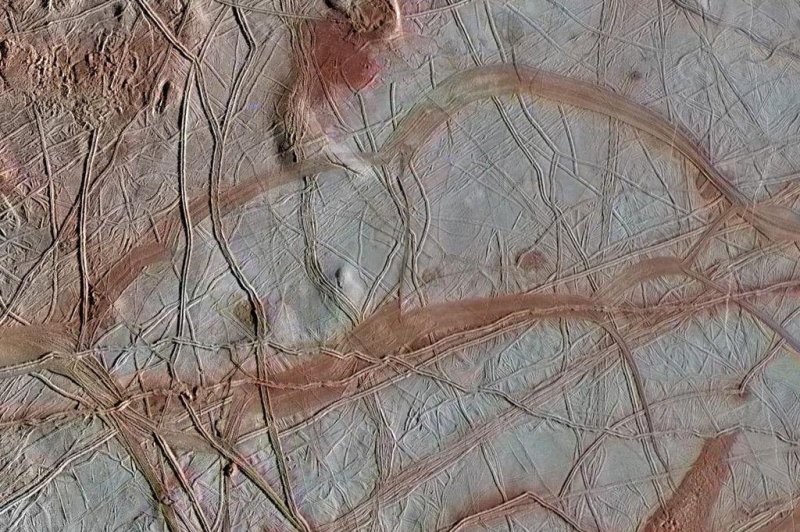The interaction between radiation and water molecules on Europa's surface may supply its ocean with oxidants, while interactions between water and rock deep in its interior may supply its ocean with hydrogen -- two key ingredients for life. Photo by NASA/JPL-Caltech/SETI Institute
PASADENA, Calif., May 17 (UPI) -- Life's biological processes require the right balance of chemical properties. Scientists suspect the ocean on Jupiter's moon Europa may harbor the right mix of chemicals.
Recently, researchers modeled the ability of Europa's ocean to produce hydrogen and oxygen without the aid of volcanic activity. Their analysis suggests Europa's salty liquid insides may produce the right balance of chemical energy to host life -- even without hydrothermal activity.
"We're studying an alien ocean using methods developed to understand the movement of energy and nutrients in Earth's own systems," Steve Vance, a planetary scientist at NASA's Jet Propulsion Laboratory, said in a news release. "The cycling of oxygen and hydrogen in Europa's ocean will be a major driver for Europa's ocean chemistry and any life there, just as it is on Earth."
Valance and his colleagues believe Europa's rocky interior is much more Earth-like than previously suggested. Interactions between rocks and Europa's ocean water may produce hydrogen in a process called serpentinization.
When water seeps deep into rocky crevices, it interacts with molecules to form new minerals, releasing hydrogen in the process. Scientists hypothesize that Europa's seawater may permeate as deep as 15 miles into Europa's rocky interior.
The oxygen is likely delivered from above, researchers say. When radiation from Jupiter splits water molecules on Europa's icy surface, the resulting oxidants are cycled into the ocean where they react with hydrogen.
Researchers published their new analysis in the journal Geophysical Research Letters.
"The oxidants from the ice are like the positive terminal of a battery, and the chemicals from the seafloor, called reductants, are like the negative terminal," said study co-author Kevin Hand, a planetary scientist at JPL. "Whether or not life and biological processes complete the circuit is part of what motivates our exploration of Europa."
Previous studies have suggested Europa requires either hydrothermal vents of volcanic activity to generate mineral-rich hot water and the life-giving qualities similar to Earth's ocean.
The latest findings suggest a cold ocean floor could promote more rock fragmentation and, thus, hydrogen via serpentinization.















